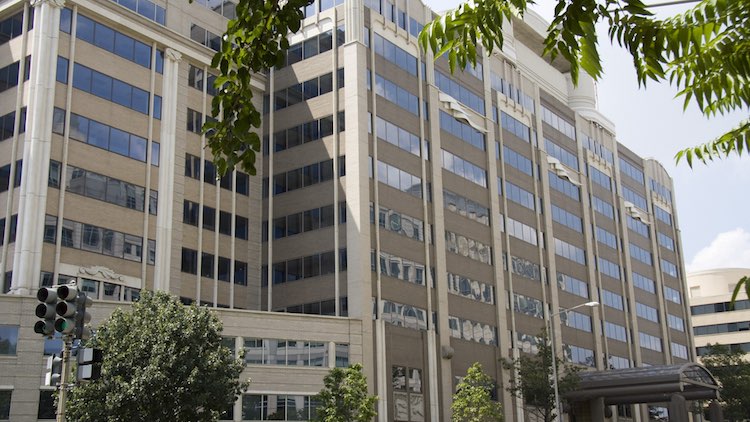Net Reg Rule Rollback Fans: Sky Isn't Falling

The smarter way to stay on top of broadcasting and cable industry. Sign up below
You are now subscribed
Your newsletter sign-up was successful
As activists talking web doom and gloom pushed for a congressional rollback of the FCC's network neutrality rule deregulation taking effect Monday, fans of the FCC move were weighing in, including calling for Congress to step in to create new rules not based in Title II common carrier regulatory authority.
FCC chairman Ajit Pai took to CNET in an op ed to make his case for the pro-competition, pro-consumer impact of his Restoring Internet Freedom Order.
"The bottom line is that our regulatory framework will both protect the free and open internet and deliver more digital opportunity to more Americans," Pai said. "It's worked before and it will work again. Our goal is simple: better, faster, cheaper internet access for American consumers who are in control of their own online experience. And that's what the FCC's Restoring Internet Freedom Order will deliver."
Pai has argued that the 2015 Title II-based rules discouraged innovation and investment, including in the rural broadband he sees as key to closing the digital divide. He also says combining the FCC's new transparency requirements and the Federal Trade Commissions newly restored--as of Monday--power to regulate broadband can sufficiently protect an open internet.
“Using our existing authority, we will work hard to ensure broadband providers keep their promises to consumers and are not engaged in anticompetitive practices," said an FTC spokesperson. "As we monitor the marketplace, we will work with Congress to address any additional resources we might need.”
"The Obama Administration’s net neutrality rules, grounded in Title II of the Communications Act, put the United States on the path of regulating broadband like an unchanging public utility," said Doug Brake of tech policy think tank The Information & Innovation Alliance. "It is time to put the Title II chapter in the net neutrality saga behind us."
"Chairman [Ajit] Pai’s efforts return broadband to a regulatory environment better suited to encouraging an innovative, evolving communications platform," says Brake. "The Chicken Littles' claiming “the end of the Internet” will now be proved wrong. However, there is still much to be done to achieve a stable, lasting legal framework that gives everyone in the Internet ecosystem confidence to invest in and use this crucial technology. Now is the time for policymakers to work toward bipartisan compromise legislation that will stand the test of time."
The smarter way to stay on top of broadcasting and cable industry. Sign up below
Related: Net Neutrality Rule Fans Pan June Sunset
“But the fight to restore the FCC’s net neutrality rules is far from over. That means Congress needs to work together on a legislative solution," he says.
"Don’t believe the hype. Today isn’t the end of net neutrality protections," said Fred Campbell, director of Tech Knowledge. "It’s a change in venue."
"Under its previous net neutrality regulations, the FCC regulated some internet companies using its statutory authority to protect consumers from ‘unjust and unreasonable’ practices. Under the ruling that took effect today, the Federal Trade Commission now regulates all internet companies using its statutory authority to protect consumers from ‘unfair or deceptive acts or practices.’ This simple shift in authority from one federal agency to another is why some advocates claim the internet sky is falling. Hyperbole is the only oxygen left in the net neutrality debate, and it’s causing people to hyperventilate.”
Adonis Hoffman, chairman of Business in the Public Interest and former chief of staff to net reg rollback foe Mignon Clyburn, suggested that policymakers might want to look toward the edge rather than focusing on ISPs.
"The Internet as we have come to know it did not end because the Restoring Internet Freedom order went into effect today," Hoffman told B&C. "We can still stream Netflix and all the other must-see content online for the same prices unless Netflix, Amazon, Google and other edge providers decide to up the ante. Now wouldn't that be something."
Renewing its openness pledge while also emphasizing the need for a legislative hedge against the edge that covers all players was AT&T.
“As the FCC’s open internet order takes effect today, two things will remain unchanged. First, the internet will continue to function just as it did yesterday, empowering this generation and those that follow with robust access to information, entertainment and, most importantly, to each other," said AT&T EVP Joan Marsh. "Second, our commitment to an open internet will not waiver, just as our customers expect and deserve. In January, our chairman published an open letter reiterating that commitment to support internet freedom on our network and calling for an Internet Bill of Rights that guarantees consumer protections applicable to all internet companies. If that sounds as good to you as it does to us, we hope you’ll join us in working towards permanent and bipartisan legislation that will ensure consistent rules of the road for all companies and across all websites.”
“It’s business as usual on the internet today—movies are streaming, e-commerce is thriving, and advocates are using the internet to make their voices heard," added USTelecom President Jonathan Spalter, using net neutrality activists own online protests about the rollback as evidence their fears are mistplaced. "These positive and profound benefits of a free and open internet—among many others— are here to stay.“America’s broadband providers remain committed to the principles under which internet innovation has thrived, and now, with full confidence, can continue investing in strengthening our nation’s networks and closing the digital divide.”
Contributing editor John Eggerton has been an editor and/or writer on media regulation, legislation and policy for over four decades, including covering the FCC, FTC, Congress, the major media trade associations, and the federal courts. In addition to Multichannel News and Broadcasting + Cable, his work has appeared in Radio World, TV Technology, TV Fax, This Week in Consumer Electronics, Variety and the Encyclopedia Britannica.

